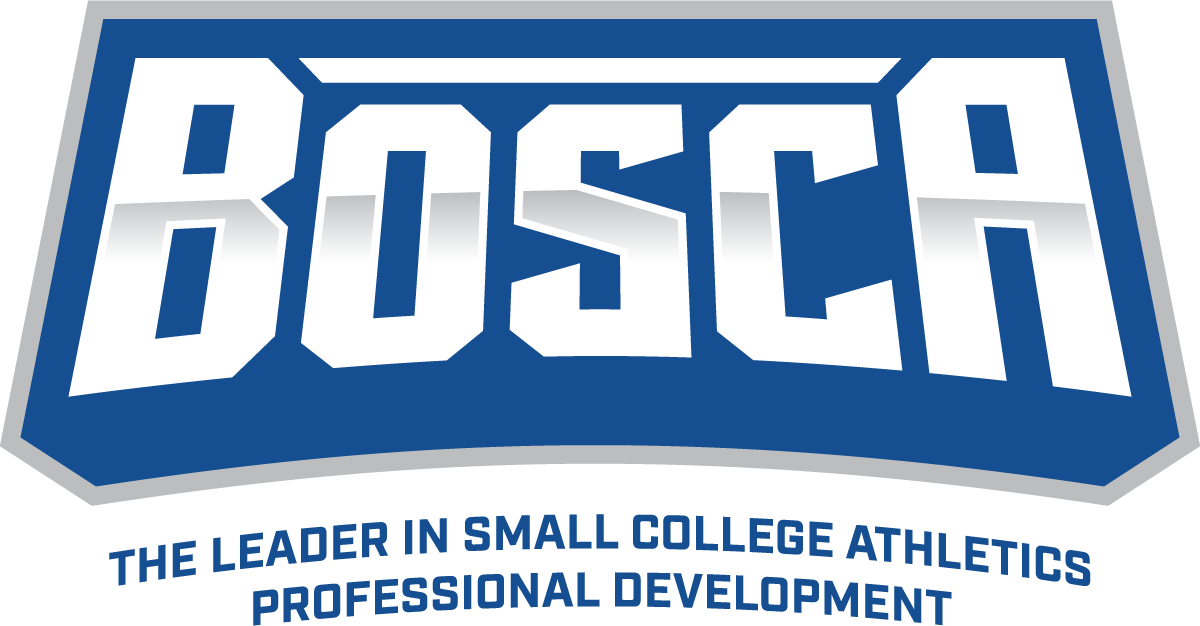INVOLVING COACHES IN FUNDRAISING
Fundraising is a necessity in Small College Athletics. Whether it is raising funds to enhance facilities, building endowments, or merely covering operating expenses of a program we are all looking for more revenue. Unlike our peers in the “Big 5” we can’t just rely on increased TV revenue, million dollar partnership agreements, or our “nation” of fans to provide the resources that we need to be successful. Just as the Big 5 have been more creative in generating more revenue, those of us working in Small Colleges have to make efforts to take the same comprehensive approach.
I spend a majority of my time with my “revenue generation” hat on. As such, that theme trickles through to everyone in our department. I don’t have a development officer in athletics so I have deputized every member of our staff to make revenue generation part of their responsibility. When I interview a prospective staff member for any position there is always some discussion about their experience in fund-raising or their willingness to participate.
This is particularly true for Coaches. At Oklahoma City University our sport budgets probably cover about 70% of the expenses a program will face. Some coaches stretch their budgets further and other coaches less. The point is that one of the questions that every coach here faces is how can they run the program with the allotted resources? Most often, the answer to that question is….I can’t. Knowing that up front, our coaches embrace the idea that they will have to fund-raise to make up the difference. Similarly, when I hire a new coach I make sure that they understand that we don’t just suggest that they be active in raising funds….it is a requirement.
I meet regularly with my head coaches and just about every meeting touches on fund-raising in one way shape or form. Following are some of the items that I discuss with coaches when brainstorming about fund-raising.
- Have a Plan
– Fundraising has to start with a vision and goals for what you want to accomplish.
The goals can be as simple as breaking even on your budget (not very compelling to a donor) and as visionary as building a new facility or endowing the entire program.
The coach must be able to quickly and easily articulate the needs and vision of his or her program.
The vision must be realistic and attainable.
It is important that this be communicated as a vision as opposed to a complaint about their less than desirable budget.
They knew the budget coming in.
- Prospects
– Each team has a built in source of prospects which would include former players(doesn’t work for brand new programs), other alumni, parents, personal connections and others.
I encourage coaches to start by putting together a comprehensive list of prospects and to begin communicating with these prospects. The easiest way to communicate would be a regular(monthly) mass email.
These emails should take the shape of “updates” and provide positive inside information about the program.
- Ask and Ask Often
– Coaches are born salesmen that have no hesitation about asking prospective students to join their teams.
And yet, some of them stink at using these natural skills to ask for money.
At a minimum, I ask coaches to communicate their plan (what is it you’re trying to accomplish), to their list of prospects.
My approach would be to use 1-2 of their monthly updates to encourage those prospects that are interested in the program to contribute.
After all, fundraising is a part of the program and updates should naturally include this information….and an invitation to participate.
- Overachieve
– As I mentioned above, small college athletic programs will always need money.
With this in mind, I encourage my coaches to not just raise the funds that they need to break even but try to raise enough to create a “security blanket” when times get tough.
We are fortunate at OCU in that the university allows teams to raise funds and allows each team to carryover any unused money that has been raised.
The vast majority of my teams have built comfortable restricted accounts that allow them to operate comfortably and allow them to expand their vision for their program as well as deal with budget cuts and other unexpected expenses that may arise from time to time.
- Sustain Your Effort
– Fundraising is not a short term endeavor.
I expect that coaches will always see opportunities for growth within their program and will always need resources to build.
Coaches have to be in the “habit” of fundraising and committed to building these efforts over the long term.
This means adding and deleting names from their prospect list, determining which programs work and which ones don’t and consistently communicating.
If a coach will do this, they will find that raising money gets easier and the amount contributed each year will grow.
- Thank Everyone
– This seems like a simple reminder.
Coaches should be grateful to anyone that is willing to contribute to their vision.
As such, it’s critical that coaches take the time to send a hand-written thank you or involve their student-athletes in thanking donors.
As the Athletic Director, I also play a role in raising funds for each of our 21 sports. I have designed our booster club in such a way that any donor can give their gift to the sport of their choice. I fund the booster club materials and mail them to each prospect in our system. I have also created our department-wide fund-raising events in such a way that any program can participate and generate revenue from them. Finally, I often call on prospective donors on behalf of specific sports. At the end of the day, the donor makes the decision on which sport will get their money. My experience is that the sports led by coaches with a vision, an ability to communicate that vision, and a willingness to ask others to participate in that vision, are the ones that come out ahead in the long run!


